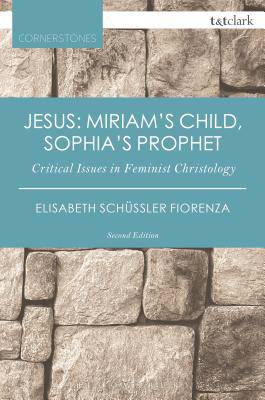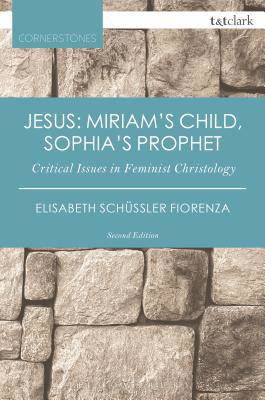
- Afhalen na 1 uur in een winkel met voorraad
- Gratis thuislevering in België vanaf € 30
- Ruim aanbod met 7 miljoen producten
- Afhalen na 1 uur in een winkel met voorraad
- Gratis thuislevering in België vanaf € 30
- Ruim aanbod met 7 miljoen producten
Zoeken
Jesus: Miriam's Child, Sophia's Prophet
Critical Issues in Feminist Christology
Elisabeth Schüssler Fiorenza
€ 34,95
+ 69 punten
Omschrijving
In Jesus: Miriam's Child, Sophia's Prophet Elisabeth Schüssler Fiorenza makes a unique contribution to two quite different discussions of Jesus the Christ. On the one hand, she looks at biblical christology from a critical feminist perspective in the tradition of liberation theology. On the other, she examines the feasibility of a feminine christology by considering such problems as Christian anti-Judaism, ideological justification of domination, religious exclusivism and the formation of patriarchal identity. Re-imagining the Jesus movement in a feminist key transcends the boundaries set by history, gender and doctrine. By assessing various Jesus traditions and interpretations in terms of whether they can engender liberating visions for today, Schüssler Fiorenza seeks to challenge and transform a Christianity dominated by masculinity and exclusivist theological frameworks so that it offers a vision of justice and well-being for all, the central image in which is the reign, the coming world, of God. This Cornerstones edition features a new extended introduction which takes into account the developments in the field since the work was originally published in 1994.
Specificaties
Betrokkenen
- Auteur(s):
- Uitgeverij:
Inhoud
- Aantal bladzijden:
- 328
- Taal:
- Engels
- Reeks:
Eigenschappen
- Productcode (EAN):
- 9780567658654
- Verschijningsdatum:
- 19/11/2015
- Uitvoering:
- Paperback
- Formaat:
- Trade paperback (VS)
- Afmetingen:
- 155 mm x 234 mm
- Gewicht:
- 430 g

Alleen bij Standaard Boekhandel
+ 69 punten op je klantenkaart van Standaard Boekhandel
Beoordelingen
We publiceren alleen reviews die voldoen aan de voorwaarden voor reviews. Bekijk onze voorwaarden voor reviews.











